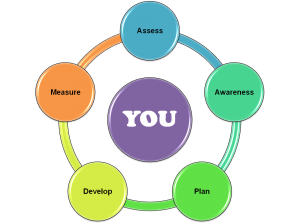Becoming a Leader: Challenge #9–Learn From Criticism
You can’t learn from criticism, and you’re not likely to receive constructive criticism from colleagues in the future, if you react defensively. When you’re criticized, don’t return fire immediately. Use your Emotional Intelligence (EQ) to remain calm and try to understand both the criticizer’s position and emotions. Here are three steps you should take when criticized:
1. Agree with some of what you hear. If you’re calm and reasonable, it shouldn’t be hard to agree with some element of the criticizer’s argument or at least recognize their emotion (“I can see how you might find that frustrating”). And, since nobody’s perfect, you should be eager to learn and improve.
2. Thank them for taking the time, energy, and courage to supply constructive criticism. You want to make sure others know that you’re receptive toward criticism, so they feel comfortable sharing freely in the future.
3. Ask the person providing you the feedback how you might do a better job in the future. This helps them become part of the solution and is a great way to defuse the tension.
4. Don’t point out everything the criticizer is doing wrong. If you have constructive criticism to provide your criticizer do it at another time. Otherwise it will feel like you’ve either been holding it back or that you’re retaliating.
5. Don’t hold a grudge. Instead, check in with the criticizer to see if they notice any improvement.
Not all criticism is constructive, of course. When faced with a truly mean-spirited, ad hominem attack, you have a right to defend yourself and your reputation. Rarely, though, will you and your reputation benefit from firing back in the same manner as the mean-spirited criticizer.
Becoming a Leader: Talent #9–Strong Communication Skills
Communication isn’t just written or verbal–it includes the nonverbal. Nonverbal communication (tone, volume, eye contact, facial expression, posture, timing, pace, word choices, etc.) gives additional meaning and impact to what you write and say. It helps you deliver a clear and compelling message.
Get out of your head and into your heart to effectively communicate with people.




